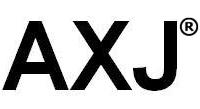AXJ
AXJ, One World in Peace!
Welcome to Actions for Justice ( AXJ ) where we provide our Members with the most updated news and information from around the world 24/7/365. Stay Informed! AXJ is a nonprofit organization. We depend on readers like you to help us do our important work of sharing ideas and knowledge from academia with the public. Your support keeps us going strong. Your Membership and donations will help us reach more people with more research-based journalism. Thank you.
HOMEOWNERS FIGHT FOR STANDING TO FILE CLASS ACTIONS AGAINST LENDERS IN THE USA
HOMEOWNERS FIGHT FOR STANDING TO FILE CLASS ACTIONS AGAINST LENDERS IN THE USA
American Homeowners have decided to create a class and file actions against their lenders in order to recover their homes unlawfully foreclosed upon. The first step is to consolidate "standing" in all State Courts.
Standing to Invoke PSAs as a Foreclosure Defense
Posted by Eric Mesi on May 1, 2014 at 10:15 PM Comments comments (0)
A major issue arising in foreclosure defense cases is the homeowner's ability to challenge the foreclosing party's standing based on noncompliance with securitization documentation. Several courts have held that there is no standing to challenge standing on this basis, most recently the 1st Circuit BAP in Correia v. Deutsche Bank Nat'l Trust Company. (See Abigail Caplovitz Field's cogent critique of that ruling here.) The basis for these courts' rulings is that the homeowner isn't a party to the PSA, so the homeowner has no standing to raise noncompliance with the PSA.
I think that view is plain wrong. It fails to understand what PSA-based foreclosure defenses are about and to recognize a pair of real and cognizable Article III interests of homeowners: the right to be protected against duplicative claims and the right to litigate against the real party in interest because of settlement incentives and abilities.
The homeowner is obviously not party to the securitization contracts like the PSA (query, though whether securitization gives rises to a tortious interference with the mortgage contract claim because of PSA modification limitations...). This means that the homeowner can't enforce the terms of the PSA. The homeowner can't prosecute putbacks and the like. But there's a major difference between claiming that sort of right under a PSA and pointing to noncompliance with the PSA as evidence that the foreclosing party doesn't have standing (and after Ibanez, it's just incomprehensible to me how this sort of decision could be coming out of the 1st Circuit BAP with a MA mortgage).
Let me put it another way. Homeowners are not complaining about breaches of the PSA for the purposes of enforcing the PSA contract. They are pointing to breaches of the PSA as evidence that the loan was not transferred to the securitization trust. The PSA is being invoked because it is the document that purports to transfer the mortgage to the trust. Adherence to the PSA determines whether there was a transfer effected or not because under NY trust law (which governs most PSAs), a transfer not in compliance with a trust's documents is void. And if there isn't a valid transfer, there's no standing. This is simply a factual question--does the trust own the loan or not? (Or in UCC terms, is the trust a "party entitled to enforce the note"--query whether enforcement rights in the note also mean enforcement rights in the mortgage...) If not, then it lacks standing to foreclosure.
It's important to understand that this is not an attempt to invoke investors' rights under a PSA. One can see this by considering the other PSA violations that homeowners are not invoking because they have no bearing whatsoever on the validyt of the transfer, and thus on standing. For example, if a servicer has been violating servicing standards under the PSA, that's not a foreclosure defense, although it's a breach of contract with the trust (and thus the MBS investors). If the trust doesn't own the loan because the transfer was never properly done, however, that's a very different thing than trying to invoke rights under the PSA.
I would have thought it rather obvious that a homeowner could argue that the foreclosing party isn't the mortgagee and that the lack of a proper transfer of the mortgage to the foreclosing party would be evidence of that point. But some courts aren't understanding this critical distinction.
Even if courts don't buy this distinction, there are at least two good theories under which a homeowner should have the ability to challenge the foreclosing party's standing. Both of these theories point to a cognizable interest of the homeowner that is being harmed, and thus Article III standing.
First, there is the possibility of duplicative claims. This is unlikely, although with the presence of warehouse fraud (Taylor Bean and Colonial Bank, eg), it can hardly be discounted as an impossibility. The same mortgage loan might have been sold multiple times by the same lender as part of a warehouse fraud. That could conceivably result in multiple claimants. The homeowner should only have to pay once. Similarly, if the loan wasn't properly securitized, then the depositor or seller could claim the loan as it's property. Again, potentially multiple claimants, but the homeowner should only have to pay one satisfaction.
Consider a case in which Bank A securitized a bunch of loans, but did not do the transfers properly. Bank A ends up in FDIC receivership. FDIC could claim those loans as property of Bank A, leaving the securitization trust with an unsecured claim for a refund of the money it paid Bank A. Indeed, I'd urge Harvey Miller to be looking at this as a way to claw back a lot of money into the Lehman estate.
Second, the homeowner had a real interest in dealing with the right plaintiff because different plaintiffs have different incentives and ability to settle. We'd rather see negotiated outcomes than foreclosures, but servicers and trustees have very different incentives and ability to settle than banks that hold loans in portfolio. PSA terms, liquidity, capital requirements, credit risk exposure, and compensation differ between services/trustees and portfolio lenders. If the loans weren't properly transferred via the securitization, then they are still held in portfolio by someone. This means homeowners have a strong interest in litigating against the real party in interest.
I'm not enough of a procedure jock to know if there's a way for a homeowner to force an interpleader among the potential claimants-trust, depositor, seller, etc, but that seems like the right way to handle this. In any event, I think the fact that the homeowner isn't a party to the securitization is kind of beside the point. The homeowner should be able to challenge standing because the homeowner has real legal interests at stake in litigating against the right party.
Foreclosure Defense
Posted by Eric Mesi on May 1, 2014 at 9:40 PM Comments comments (0)
One percent’s anti-Piketty scheme: Its insane new plan to boost the rich (and raid the poor).
It may not last, but for one brief moment yesterday, the country dodged a huge bullet. Members of both parties, and the entire White House economic team, have wanted for years to deliver a startling wealth transfer from the public to Wall Street, one that will almost certainly trigger homeowner abuse while making the largest financial institutions wildly rich. In other words, some of the same politicians who pay lip service to Thomas Piketty and the fight against rampant socioeconomic inequality wanted to pull off the greatest heist for the rich at the expense of the poor in decades. But at the last minute, they couldn’t get the support they needed in the Senate Banking Committee.
The legislation in question, written by Banking Committee chair Tim Johnson (D) and ranking member Mike Crapo (R), would eliminate Fannie Mae and Freddie Mac, companies currently under a government conservatorship, which package and sell securities backed by residential mortgages. Instead, Johnson-Crapo would have private financial institutions issue their own mortgage-backed securities, and give them government insurance against losses. To understand the insanity of this notion, you have to remember why we had a financial crisis.
Fannie and Freddie didn’t cause the crisis. They were late to the party, in fact, only dipping into subprime mortgages once they lost market share. Private banks fueled the housing bubble by demanding more and more subprime loans to purchase and package. This degraded lending standards, as anyone with a pulse could get a mortgage. Banks knew the loans were garbage, but built the securities anyway, and sold them all over the world to investors who were lied to about their quality. When the music stopped, losses on the private securities triggered the meltdown.
In a collective bout of amnesia, Washington lawmakers believe the antidote to this is to let the same private banks that caused the crisis dominate mortgage securitization all over again, by eliminating their biggest competition. Not only that, it would give Wall Street a government guarantee for this privilege. Under Johnson-Crapo, a new public entity called the Federal Mortgage Insurance Corp. would insure catastrophic losses on the securities. Investors would have to take a 10 percent first-loss position, with the government picking up the rest. This means that the private sector would take 10 percent of the risk and collect all the profits, while the government would take 90 percent of the risk and collect none of the profits.
Nobody can articulate what problem this would actually solve, other than murmurs about how this is “unfinished business” from the financial crisis. If Wall Street banks wanted to issue mortgage-backed securities right now, no laws stop them from doing it. They don’t because, as former congressman Brad Miller points out, investors wouldn’t touch them, remembering all too well the massive abuses that resulted the first time, many of which are still being litigated. All Johnson-Crapo would do is eliminate Wall Street’s competition, allowing them to corner a lucrative market while only carrying a sliver of the risk.
During their conservatorship, Fannie and Freddie have had the secondary mortgage market to themselves, operating effectively as public companies providing a public service of making mortgages more available. Actually, they’ve gone back in time, when Fannie Mae was a fully public company from 1938 to 1968, a period of economic expansion and rising homeownership. Through issuing securities on over 60 percent of new mortgages, Fannie and Freddie have paid back the government in full for their $188 billion bailout. Meanwhile, mortgages generated over the past year have performed the best on record.
More important, bad actors in the system have gradually been weeded out. Under the Suspended Counterparty Program, Fannie and Freddie must stop doing business with any service provider – a mortgage servicer, law firm, property preservation specialist, etc. – whom they suspect of fraud. For example, Fannie Mae recently stopped doing business with two “foreclosure mill” law firms in Colorado, who had a habit of charging 12 times the cost to post notices of default on homeowners’ doors, and then persuaded the state Legislature to require a second notice to be posted.
Private banks running the secondary mortgage market would have no incentive to protect the public, and such scams will run rampant. Moreover, since banks would hold a government guarantee on mortgage-backed securities, they would have every incentive to fill them with the same kind of crappy loans that proliferated during the crisis. Under the bill, banks issuing securities would have no duty to act in the best interest of investors, much less homeowners. And even supporters of Johnson-Crapo acknowledge that it will raise mortgage interest rates anywhere from 0.5-2.0 percent, making housing even less affordable than it is today.
Boosters of this idea, which include the entire White House economic team, make the argument that only a government guarantee can bring private capital back to the mortgage market, but also that no government money could possibly get used under this system, since a 10 percent loss was twice as much as Fannie and Freddie lost in the aftermath of the crisis. This is actually a half-truth: Fannie and Freddie didn’t control the entire mortgage market, which lost much more in housing wealth during the meltdown, by a factor of trillions of dollars. But supporters of Johnson-Crapo should answer this question: If government money will never get put to use, why do you need the guarantee at all? Is it just to goose Wall Street profits?
Fortunately, some champions for the public – and a couple of greedy hedge funds – have frozen Johnson-Crapo in place. Days before the scheduled markup in the Senate Banking Committee, Democratic Sen. Sherrod Brown released a series of amendments, including some with Republican David Vitter. These amendments sought to strengthen the bill, by protecting borrowers from abusive fees, stopping mortgage servicers from having a financial interest in foreclosing, and limiting market concentration. This was a subtle signal of dissent among liberals on the Banking Committee for just returning to the Wild West show that was mortgage securitization in the housing bubble years.
At the same time, House Republicans see the government guarantee as a permanent bailout (it’s hard to actually argue with this) and put forward their own legislation for a fully private market (it’s easy to argue with that unrealistic solution). Meanwhile, conservatives have rallied around a group of potential campaign contributors … I mean a group of hedge fund shareholders … who purchased Fannie and Freddie stock and want the government to buy back their shares. So while support for Johnson-Crapo is bipartisan, so is the opposition, albeit for vastly different reasons.
Johnson and Crapo need massive support – at least 16 of the 22 votes on the Banking Committee – to pressure Harry Reid to schedule a Senate vote on the bill. But six liberal holdouts who have not affirmed their support clearly would not go along with the program. At yesterday’s scheduled markup, Johnson announced a delay. “While we have the votes to report out the bill today,” Johnson said, “we will continue working with interested members of both parties.” No date was set for when the markup would resume.
This really does damage the prospects for Johnson-Crapo. Supporters clearly wanted to show some forward momentum for the bill with a bipartisan vote, proving that “everybody” agrees on the eventual outcome. Despite a full-court press from the White House, however, not everybody agrees. A few brave souls still look at bringing back the exact same operators to run the exact same scam that blew open a hole in the economy we still haven’t climbed out from, and think that’s maybe not such an awesome idea.
Those in Washington who want to privatize Fannie and Freddie will return, of course, so it’s critical to pay attention to this debate. The nation survived without private mortgage securitization for decades without a problem. Let’s hope we can keep it that way.
Sponsors
AXJ NEWS
© 2025 Created by AXJ USA.
Powered by
![]()
Badges | Report an Issue | Privacy Policy | Terms of Service





 BECOME A RESELLER AND MAKE $$$ NOW!
BECOME A RESELLER AND MAKE $$$ NOW!




 <\/a>
<\/a> 

You need to be a member of AXJ to add comments!
Join AXJ